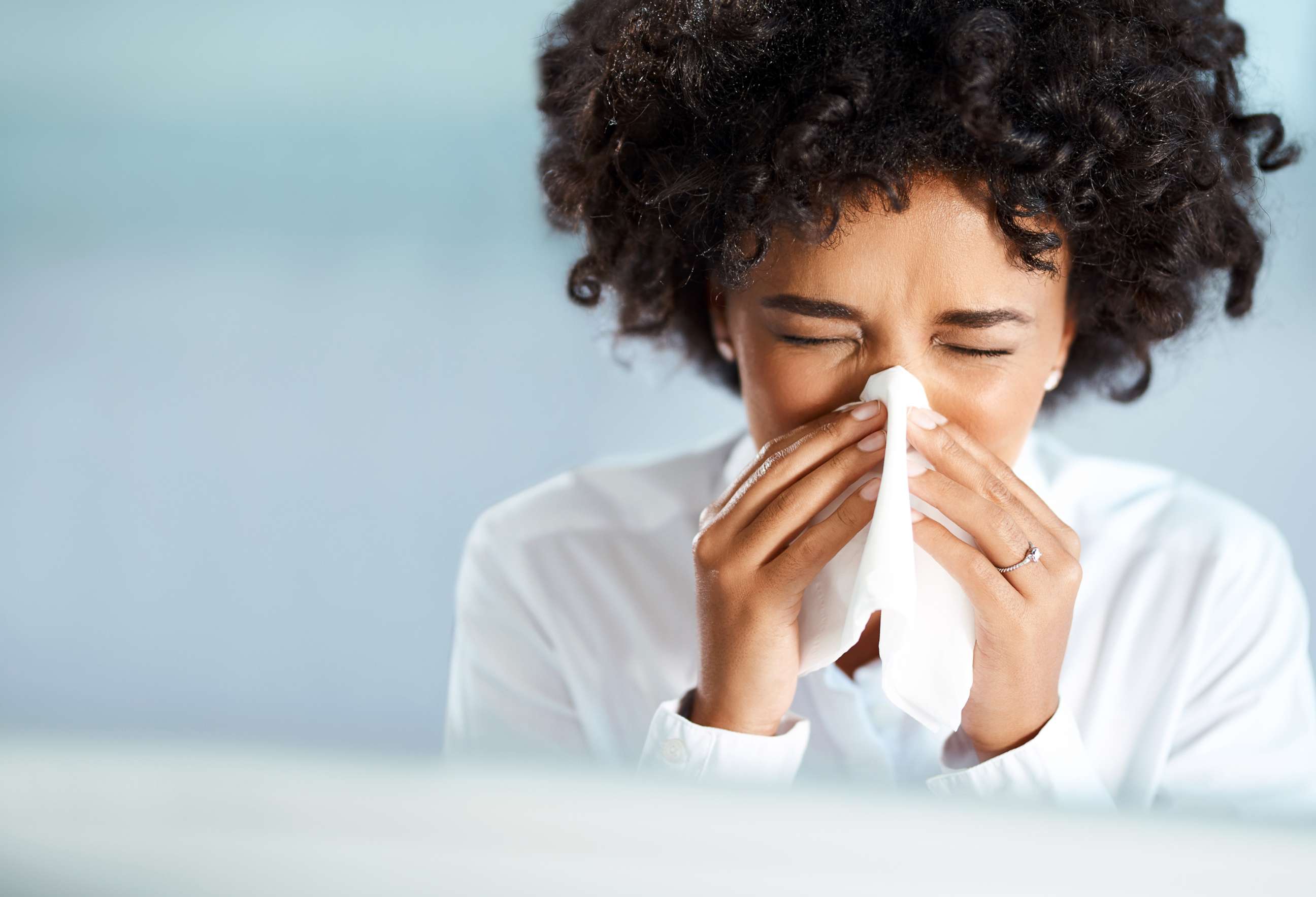The severity of this year's flu virus and what to expect from the vaccine
The CDC reported a steady increase in the number of new cases.
Some experts have already predicted a severe flu season so it's time to take the proper health precautions and understand the best ways to protect against the virus.
ABC News' chief medical correspondent Dr. Jennifer Ashton weighed in on "Good Morning America" to share her take on this year's strain, the vaccine and how to stay healthy.
"It's so difficult to predict, we only know in hindsight," she explained. "You can't predict it."
The CDC releases a weekly influenza surveillance report which has shown a spike in the number of new cases currently above the national baseline.
Why is the flu expected to be so bad this year?

Ashton said that much of what we use as an indicator comes from the southern hemisphere, which saw a busy flu season this year with the H3N2 strain.
There are two main groups of influenza viruses: influenza A and influenza B. The H3N2 strain belongs to the influenza A family.
"We look to the southern hemisphere, what has gone on there because they tend to be ahead of us and they had a tough season," she said. "The predominantly-circulating strain was the H3N2. People may remember from last year, it causes particularly severe symptoms."
The good news, Ashton added, "is that type of strain is included in this year's vaccine."
How does this year's flu vaccine differ?

Last year's vaccine was only about 30% effective, which Ashton explained is of course, "better than zero" but to think of it as a seat belt.
"It's not a great vaccine," Ashton said candidly. "It won't guarantee that you won't get the flu but it can reduce the symptoms and lower your risk of complications."
What does the hand sanitizer study show?
A recent study out of Japan compared the use of alcohol-based hand sanitizers to regular soap and water in an effort to look at hand hygiene in terms of its efficacy to kill the influenza virus.
Ashton said that the study found "that the germs on the hand actually have to be dried for the alcohol-based hand sanitizers to work at maximum efficacy."
Best practices for flu season
Flu is transmitted via droplets and contact, so Ashton recommended "good old hot water and soap with vigorous rubbing is still the best."
Get plenty of sleep. Doctors recommend at least 6-8 hours of sleep per night.
Stay hydrated and stay active. Exercise is a great way to stay healthy.
Fuel your body with healthy foods.
Dr. Ashley Knight-Greenfield, a diagnostic radiology resident who is a part of the ABC News Medical Unit, contributed to this report.




